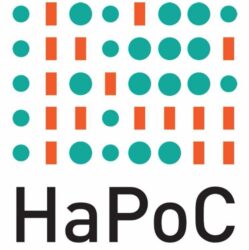Call for application: 3 years PhD position in the history and/or philosophy of programming (ANR JCJC PROGRAMme)
The project PROGRAMme (https://programme.hypotheses.org/) aims at a historical and philosophical study of computer programs. The project is funded by the ANR (48 months, JCJC project, contract nr. ANR-17-CE38-0003-01, coordinator: Liesbeth De Mol).
Description of the project
What is a (computer) program? The main question of this project starts out from the observation that, within computing, there is a diversity of understandings of what a computer program is or should be, resulting in very different approaches to the making and using of programs. A valuable assumption explaining this situation is the fact that computer programs have different modalities: a physical modality (as stored and executed in a machine); a formal modality (program-as-text); a socio-technical modality (as made and used by humans). The aim is to develop a coherent, pluralistic understanding of the notion of “program” and of its implications to theory and practice based on these three different modalities. The project will develop a historical and philosophical analysis of (models of) programs structured around four clusters:
1. Logic (e.g. lambda-calculus; Curry-Howard isomorphism)
2. Machines (e.g. EDVAC design; PC)
3. Programming languages and notations (e.g. Eiffel; Lisp)
4. Systems (e.g. Unix; Emacs)
Objectives of the project are to:
I. develop a dynamics of models of “programs” – how do these change and develop across the different clusters and within a given cluster – and identify and categorize scalability issues across and within individual clusters (linguistic; ontological; epistemological; etc)
II. identify and analyze invariants – problems, techniques and models which or more or less robust across the different clusters or within specific clusters and can thus be considered as fundamental. One example could by Brooks’s law.
III. retrace and systematize the different understandings and meanings of programs relative to their respective practices – genealogy and taxonomy of models
Description of the PhD position
PROGRAMme invites applications for a 3 year doctoral position expected to start on October 1, 2018. The position will be hosted at Université de Lille at the research lab Savoirs, Textes, Langage and co-supervised by Liesbeth De Mol (CNRS, UMR 8163 STL) and Shahid Rahman (UMR 8163 STL).
In line with PROGRAMme, the PhD student is expected to develop a PhD project which will contribute to a more coherent and pluralistic understanding of (computer) programs by focusing on one of the four clusters in relation to one of the three above objectives. Different approaches will be allowed and it depends on the skills, interests and background of the PhD candidate which approach will be used. The candidate should give a short presentation of her/his possible topic and explain how it fits into PROGRAMme. See below for more details.
PROGRAMme is a multidisciplinary project which requires collaboration across different disciplinary boundaries and involves an international team of over 20 researchers with diverse backgrounds. The succesful candidate will be a member of the team and will spend most of her/his working time on her/his project in the context of this project. S/he is expected to contribute actively to the regular team meetings as well as to the planned bi-weekly work meetings. S/he is also expected to publish her/his research results as well as to contribute to the project’s wiki. S/he will be encouraged to participate in the most relevant conferences and workshops to the project (e.g. HaPoC, HaPoP, SHOT, IACAP, CiE etc).
Requirements
Candidates are required to have completed their Master degree in either history and/or philosophy of science and technology. Alternatively, a degree in the area of computing (e.g. computer science) is allowed, provided there is proven interest towards history and/or philosophy of computing. The candidate is also expected to have a good command of spoken and written English in order to be able to interact and collaborate with the international project team and to contribute to its publications. Good knowledge of written and spoken French is considered to be an advantage. Any prior research experience which has resulted in talks or publications in relevant journals and conferences will be considered a plus. Given the collaborative and interdisciplinary nature of PROGRAMme, a proven ability to understand and discuss different approaches (whether they be historical, philosopical or more technical) will be considered as an additional advantage.
How to apply?
Applications should be to liesbeth.demol@univ-lille3.fr. They should include:
1. a cv
2. a short research proposal (at most 2 pages). This should include:
a title
a short (personal) statement which includes a clear motivation of the topic with respect to PROGRAMme and with respect to the candidate’s own background and interests.
a description of the topic the candidate would like to work on. This should also introduce the project’s objective(s) and its significance.
a description of the methods to be used. This should include a description of how the project’s main objective(s) will be reached. Given the pluridisciplinary nature of PROGRAMme, the candidate should also frame the methodology in one or more disciplines relevant to PROGRAMme (e.g. epistemology; history and philosophy of science; computer science history; etc)
3. a bibliography for the project (at most 1 page)
4. a sample of academic work (e.g. Master thesis; research papers; etc)
The deadline for the application is June 20, 2018.
Review of applications will start on June 21, 2018 and the selected candidates will be invited for an interview (possibility of videoconference) to be held in the first week of July.
For further information, please do not hesitate to contact Liesbeth De Mol (liesbeth.demol@univ-lille3.fr)
